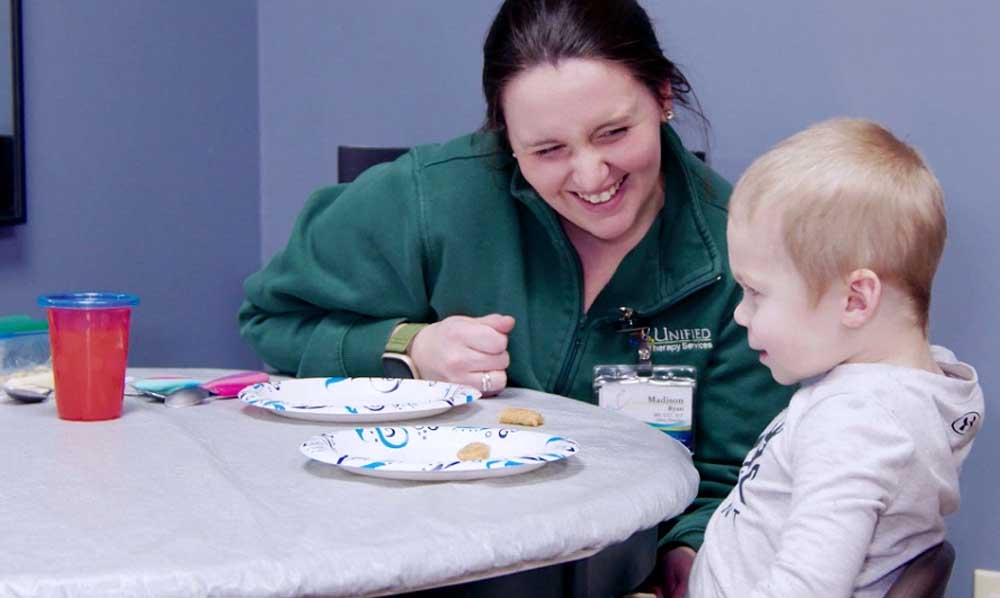
We assesses and treat children with feeding and weight/growth difficulties using the SOS and AEIOU approach. Our speech therapists are certified in these programs, which integrate many factors, including sensory, oral, motor, behavioral, medical, and nutritional factors.
This comprehensive perspective allows us to approach the evaluation and treatment of each child individually. Our approach to feeding evolved from the developmental steps, stages and skills of feeding found in typically developing children. The approach utilizes information about “normal” development to help children progress through typical feeding milestones towards the eventual goals of eating a variety of age-appropriate textures and growing at an appropriate rate. Family education and participation is a critical component of our approach to feeding. Parents and other caregivers foster progress and generalization of feeding from the clinic setting to other natural environments. Therapy sessions are held individually and/or in groups.
Who can benefit?
- Individuals who are not eating a variety of food tastes and textures from all food groups
- Showing behaviors related to feeding or mealtime
- Concerns with weight or growth
- Difficulty chewing and swallowing safely
Conditions & characteristics of individuals who may benefit from feeding therapy:
- Failure to thrive
- GERD (reflux)
- Children with G-tube
- Autism Spectrum Disorders
- Sensory Processing Disorder
- Cerebral Palsy
- Down Syndrome
- Visual impairment with related sensory needs
- Children with oral-motor concerns or anomalies (tongue tied or cleft palate)
- Typical children who are “picky eaters”
How does it all work?
It starts with a free screening at Unified Therapy Services to confirm feeding concerns. Then parents will complete a “Feeding Inventory” Next, we will complete a Customized Assessment including:
- Caregiver reports on primary feeding concerns and “red flags”
- Analysis of the child’s oral structure and movement
- Observation of the caregiver and child eating together
- Possible trial therapy techniques as appropriate
- Education on assessment results and future recommendations
Customized intervention includes:
- Caregiver education and inclusion in all therapy sessions
- Incorporation of preparatory sensory games/activities
- Presentation of foods in a customized feeding hierarchy
- Clean-up routine for further sensory integration and interaction for the days presented foods
- Comprehensive education for carryover of skills to home
Questions? Want to set up a free screening? Call our office at 563-583-4003 or email frontdesk@unifiedtherapy.com.
Written by the Speech Therapy team at Unified Therapy Services. Our team of 10 therapists are located in Lancaster, WI and Dubuque, IA. You can meet our team here: https://unifiedtherapy.com/our-team/
